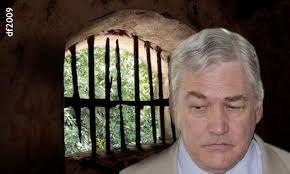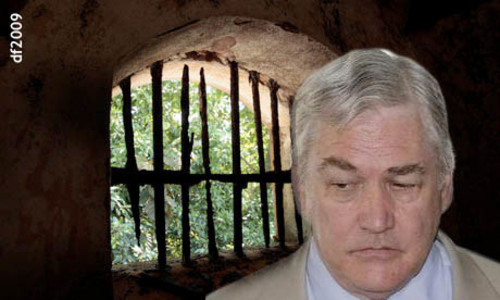As someone who generally has followed the political events and personalities of many countries for about 50 years, I must rank NDP deputy leader Megan Leslie’s defence of her chief, Thomas Mulcair — published in this newspaper on May 7 — to be an historic document.
All civilized and functioning political parties in the democratic world expect and require the expression of a certain amount of peppy public solidarity with the leader — especially from the person standing next to the leader in the hierarchy. Certainly, the contemporary Iraqi example of the prime minister (Nouri Maliki) purporting to discover a plot against him by his vice premier (Tariq Hashimi), and then chasing him from the country and convicting him in absentia of treason (and sentencing him to death) is not the sort of thing we would expect in the New Democratic Party of Tommy Douglas, David Lewis, Ed Broadbent, Audrey McLaughlin, Alexa McDonough and Jack Layton. And Ms. Leslie’s rejoinder on behalf of her leader, Thomas Mulcair, that “he certainly does not need to take lessons from Jonathan Kay [the National Post comment editor, to whose article Ms. Leslie was responding] or anyone else on how to be a good federalist,” is a commendable rallying to the support of her leader.
Where Ms. Leslie breaks new ground in revisionist elegiacs in defence of her leader and party is her assertion that the NDP is trying to preserve federalism by demanding that Quebec separatist allegations of 1980s-era impropriety against now-deceased Supreme Court of Canada justices be investigated by Parliament.
This, the otherwise unenlightened reader was told, is a part of Mr. Mulcair’s effort to strengthen federalism; he whose “whole career has been about building bridges” as he “worked tirelessly to preserve the rights of both Anglophones and francophones in Quebec”; and to repair the damage done by “Liberal and Conservative governments [which] have cynically stirred divisions in Quebec to scare the rest of Canada.”
Related
Megan Leslie: The NDP’s federalist mission
Jonathan Kay: Thomas Mulcair is becoming a liability to his party, and an embarrassment to federalism
Full Pundit: Tom Mulcair vs. the Supreme Court of Canada
The allegation about the Supreme Court is a little hard to take seriously three decades after the fact, it being flimsy and circumstantial on its face. And in any event, investigations of this kind are not properly political matters, but rather questions of the administration of justice. Transforming the NDP, the official federal opposition, into the mouthpiece of Quebec’s separatist government (the fact that the Quebec Liberals followed their usual cowardly course by throwing in with the PQ on the Supreme Court investigation issue is irrelevant) is not among the commendable fables conjured by Ms. Leslie.
Jack Layton acted with agility in the run-up to the last federal election to attract the nationalists of Quebec away from the overtly separatist Bloc Québécois, essentially by saying that the NDP (whose voters outside Quebec are federalists) was just as supportive of redistributing income and wealth in Quebec and elsewhere to those of modest means as the Bloc was — and was amenable to the sovereignty of Quebec if that was what Quebec wanted. He offered the possibility that Quebec could predominate in a federal party that would be the country’s government-in-waiting, and not barricade the province into a BQ absurdity (a separatist entity within a national legislature) that merely split the Parliamentary opposition.
Layton was right in all of this, and he was rewarded. Jack quietly appeased and finessed on matters of language rights, and professed to be a federalist but also a decentralizer. It was a vague pastiche of positions and postures that an unofficial opposition leader campaigning outside the attention of the national media can put over, for a time. Under Layton’s successor, that time is now over.
The NDP are truckling to every spurious allegation that infects the palsied imaginations of Quebec separatists
It should not be expected that Ms. Leslie, a Halifax MP, would be steeped in the history of Quebec nationalism. But her implicit claim that the frictions that have arisen between Quebec and the rest of the country, and which, as she wrote, “almost broke up the country,” were the result of the chicanery and cynicism of the Liberals and Conservatives — and that her party and leader are trying to stop those frictions by their subservient truckling to every spurious allegation and oppression of minority rights that infects the palsied imaginations of the Quebec separatists — cannot be allowed to pass without comment.
Let us try to keep a few facts in mind. When the British evicted the French from what is now Canada in 1760, apart from a few thousand American settlers in Nova Scotia, there were no English-Canadians. It was entirely French. The French-Canadians were not conquered; rather, the French army in Canada was defeated (narrowly and after heroic resistance against heavy odds). Some English-speaking people arrived in Canada as royalist fugitives from the American Revolution, and there was some immigration. But things only changed in a dramatic way a century later, when the United States abolished slavery and suppressed the southern insurgency — leaving it, at the end of a civil war that killed 750,000 people in a population of 33 million, with the greatest army and the greatest generals in the world, and not a lot of goodwill for Canada or the British Empire.
John Macdonald and a few others concluded, and convinced the British government, that if Canada was not to fall into the lap of the United States or be snapped up by it, the bits and pieces along the northern U.S. border in what is now Canada would have to call themselves a country, connect to each other by a trans-continental railway and try to make a go of it.
The French-Quebeckers agreed, over significant reservations, because they feared being demographically overwhelmed by the Americans and losing their language (although in other respects, the Québécois have long tended to prefer the Americans to the British and English Canadians).
For a century after Confederation began, there were abrasions between the French and the English. And in general, there was little respect for the rights of the French language or the Roman Catholic school system (in an era when this was important to French Canadians, who comprised most of the country’s Catholics). Gradually, after World War II, the Quebec government, under three different parties, sought a reapportionment of jurisdictional rights between Quebec and Ottawa, with the implicit and later explicit threat to secede.
If the country does not mismanage the issue and grossly affront the French Canadians, the present institutions can durably work and be fine-tuned to work better
The Government of Louis St. Laurent conceded to the Quebec government of Maurice Duplessis in 1955 the legitimacy of Quebec assessing and collecting some of its concurrent rights over income tax. The division of this revenue evolved (in Quebec’s favour) was imitated by the demands of the other province, and was supplemented by a system of equalization and other transfer payments that effectively siphoned large sums from the wealthiest provinces and massaged them around, chiefly to Quebec. The federal government, under Pierre Trudeau, then effectively established the policy of an enhanced status for French throughout English Canada, followed by an outright refusal to entertain further accretions of jurisdiction to provincial governments.
This formula has essentially succeeded. And today, Quebec is, very roughly, one third fairly emphatically federalist; one third would prefer independence if it were feasible with or without some continuing association with Canada; and the last third are conditional federalists who move in the middle according to events and personalities. The separatists cannot get near a majority for secession without a trick question that maintains the benefits of federalism while exchanging embassies with the world. If the country does not mismanage the issue and grossly affront the French Canadians, the present institutions can durably work and be fine-tuned to work better. But the Quebec nationalists, in a state of understandable frustration, and to try to raise their possibility of referendary success by driving out the cultural minority, devise ever more fiendish and imbecilic ways to torment the non-French in Quebec, in defiance of all contemporary standards of civil liberties and freedom of expression.
It has been my privilege to know every Canadian prime minister from M. St. Laurent to the incumbent. All 11 of them passionately cared about Canada, and none of them was cynical in the slightest degree on the subject of the integrity of the country and the rights of its founding groups. Yet that failing is the precise hallmark of the current NDP leadership — though not its antecedents, who were men and women of some principle.
It is quite expected that Megan Leslie would seek to whitewash her own leader. But it ill behooves her to defame, in bowdlerized caricature, those who, in the country’s highest office (which her party has never held) have preserved Canadian federalism.
It is Ms. Leslie and Mr. Mulcair who undermine federalism with their enticements to the Quebec separatists. They insult the intelligence of the whole country by masquerading as defenders of Confederation.
Conrad Black: An insult to history’s real federalists




























Laissez un commentaire Votre adresse courriel ne sera pas publiée.
Veuillez vous connecter afin de laisser un commentaire.
Aucun commentaire trouvé